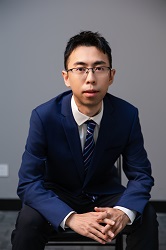- Speaker
- A/Prof. Chen Li
- Peking University
- Abstract
The present-day commonly used density functional approximations (DFAs) suffer from various systematic errors, and they can all be attributed to the violation of some exact constraints. Here we focus on yet another unexplored exact constraint, i.e., the semi-classical limit, where ћ→0. Through a model atomic calculation, we show that the exact total energy as ћ→0 saturates to a finite value, whereas the mainstream DFAs have qualitatively wrong divergent behavior of ћ^(-1/6). Moreover, we show that this semi-classical limit is highly relevant to strongly correlated systems such as in the stretching of chemical bonds, or transition metal diatomic molecules in their equilibrium bond length. By introducing an effective ћ for valence electrons, we estimate that the ћeff for such systems can be as small as 0.2. Thus, this exact constraint might inspire novel functional approximations for describing strong correlation. In the second part of the talk, we discuss our recently developed method for solving Schrödinger equations, which allows us to obtain the exact analytic structure of wave functions for one and two-body problems, and can be further generalized to many-body problems. The analytic expression of the ground state wave function is ultimately cast into an exact factorized form including a pre-exponential power factor, an exponential decaying term and a modulator, a mildly-varying and bounded function that can be easily approximated. This new analytic formula can be potentially a new starting point for developing DFAs that go beyond the single electron picture.
- About the Speaker
Chen Li is an assistant professor at the College of Chemistry and Molecular Engineering, Peking University. He received his bachelor's degree in chemistry and math from Peking University in 2011. After that, he pursued his PhD study in density functional theory at Duke University under the supervision of Prof. Weitao Yang, and obtained his Ph. D. degree in 2016. In 2017, he joined the Max Planck Institute of Microstructure Physics in Germany as a postdoc research scientist and worked with Prof. Hardy Gross on the topic of time dependent density functional theory beyond Born-Oppenheimer approximation. In 2019, he followed Prof. Gross and moved to the Fritz Haber Center for Molecular Dynamics at Hebrew University of Jerusalem in Israel. In September 2020, He finished his postdoc and joined the chemistry department of Peking University as an assistant professor. Prof. Li is engaged in developing novel electronic structure theory methods, including density functional approximations, and wave function theory based on recently developed technique for solving Schroedinger equations. He is also interested in developing time dependent density functional theory beyond the Born-Oppenheimer approximation for capturing nonadiabatic effects.
- Date&Time
- 2025-01-08 10:00 AM
- Location
- Room: A403 Meeting Room




